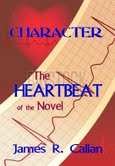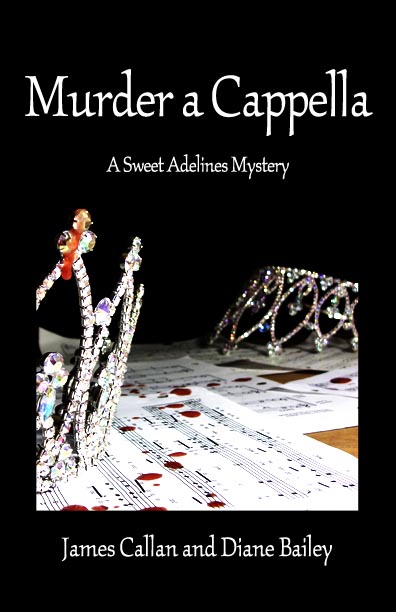Meet James R. Callan
After a successful career in mathematics and computer science, receiving grants from the National Science Foundation and NASA, and being listed in Who’s Who in Computer Science and Two Thousand Notable Americans, James R. Callan turned to his first love—writing. He wrote a monthly column for a national magazine for two years, and published several non-fiction books. He now concentrates on his favorite genre, mystery/suspense, with his fifth book released in 2013.




James R. Callan
www.cleansedbyfire.com includes book trailer
Book trailer for Murder a
Cappella at: http://www.vimeo.com/38414180
Character: The Heartbeat of
the Novel at: http://amzn.to/13ADvF3
Maybe the
Debate Started with Shakespeare
By James R. Callan
Recently I was at a gathering of writers of various levels of experience, and one of the questions going around was: Do you outline? Writers like to debate the “Outline or Don’t Outline” question. And generally, the two sides of this debate never get any closer together. Why should they? What works for them, works. Perhaps they have tried the other method and it didn’t go all that well.
There are many famous writers on each side of the fence. Naturally, some of those who say they outline may do a lot, and some may do very little. Likewise, those who say they do not outline, may actually do some. They may not even know that they do. It’s not on paper or on the computer, but in their mind. They lay out the story, select their main characters, and just possibly know how the story might end.
Many writers make detailed bios for all major characters, and shorter bios for minor characters. There is an advantage in some sort of a written bio for your characters. If you take many months to write a book, there is always a chance you might forget what color your protagonist’s eyes are. Or perhaps what food he likes or hates. A bio gives you a quick reference. If that bit of information is not there, you can easily and quickly add it. This is particularly helpful if you are going to have a continuing character over several books.
Personally, I can’t do that. I need to know the problem and a possible solution before I start. That does not mean it will turn out that way. In the course of the book, as the characters grow and takes on a lives of their own, that solution may change. But, I like to have something to encourage me to begin a months-long project. I would say that in most of my books, the outcome has changed, either completely, or in its nature. The solution might be the same, but it is arrived at from a completely different direction than I had first imagined.
But many writers have told me they have no idea how it will turn out when they start. I applaud that approach. Let the chips (or words) fall where they may. I can do that as the project progresses. Still, I like to have some way out when I start. For me, it’s like having an evacuation plan in case of fire. When the fire happens, I might take a very different path. But, I had an escape plan, knew my options.
Okay. I admit it. I’m a wimp.
 |
| www.ATonofGold.com |

No comments:
Post a Comment